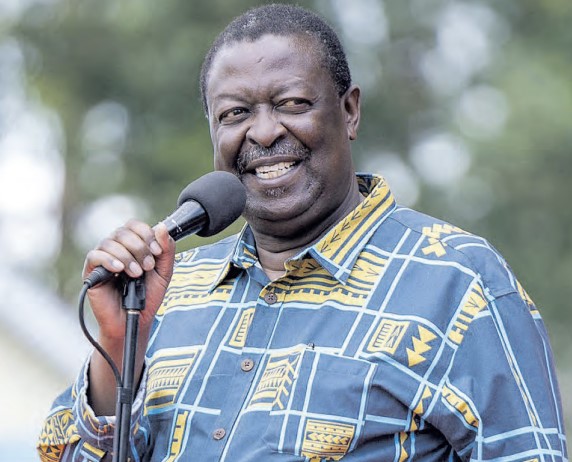.jpeg&w=3840&q=100)

President William Ruto’s radical sugar sector reforms, underpinned by the recently enacted law, promise to turn the tables in his favour across sugar belt counties ahead of 2027.
The Sugar Act, 2022, timing appears to resonate with the country’s political realignment following the impeachment of former Deputy President Rigathi Gachagua.
With Ruto’s 2027 plans drifting from the Mt Kenya region, it is expected that the new sugar reforms would enhance his western Kenya fortunes and align with his strategy.
Political risk analyst Dismas Mokua said the Sugar Act would address factors that have been suffocating the growth and development of the sugar cane industry in Kenya.
This, he said, will create unprecedented wealth creation and employment opportunities in the sugar belt, with farmers soon expected to smile to the bank.
“The Act will transform the sugar sector by addressing the cost of sugar production, paying attention to research and development besides opening up new markets,’’ Mokua said.
“The Act also addresses the critical issue of exports and imports management. Cartels and special interest groups have used the lacuna in exports and import management to frustrate sugar cane farmer returns.’’
Days after President Ruto enacted the Sugar Act, Western Kenya leaders are optimistic that it will restore sanity in the sector and herald changing fortunes for farmers.
Bungoma Senator Wafula Wakoli, who authored the Bill with Navakholo MP Emmanuel Wangwe, expressed optimism that the new law will change the lives of more than 14 million Kenyans.
“Working with all stakeholders, we will restore Kenya’s sugar sector to its rightful place as a key driver of our agricultural economy,” he said.
“I am deeply grateful to witness this moment that will revolutionise the lives of more than 14 million Kenyans across the Lake Region Economic Bloc.’’
Sugar reforms were at the heart of Ruto’s 2022 election manifesto and his decision to swiftly sign into law the bill signals his deliberate plan to secure the Western bloc.
The enactment of the Sugar Act is seen as the implementation of President Ruto’s major promise to cane farmers and the people of Western as he campaigned for elections in 2022.
Despite the Western Kenya region, being former Prime Minister Raila Odinga’s base, Ruto garnered a significant number of votes in the bloc that sent him to power.
Wangwe said that the Act, which was at the centre of Ruto’s 2022 campaigns, will be a game changer for the people of the sugar belt region, including Western, Nyanza and parts of the Coast.
“This is not just a win for the people of western Kenya, but a major leap forward for Kenyans who rely on the sugar economy to survive. It is good news for Kenyans and a big win for sugar farmers,’’ Wangwe said.
Past efforts to enact a new law on sugar reforms failed because of political chest-thumping and jingoism as politicians could not cross ranks for the general good of farmers.
However, it appears that ANC’s decision to craft a coalition with UDA has borne fruit with farmers expected to benefit from their cash crop as a result of radical reforms under the new law.
Ahead of the 2022 polls, Ruto teamed up with influential Western Kenya leaders including Prime Cabinet Secretary Musalia Mudavadi and National Assembly Speaker Moses Wetang’ula.
During the campaign trail, Mudavadi promised the region that Kenya Kwanza administration would address endemic problems bedevilling the sugar sector.
Responding to critics after he had joined forces with Ruto ahead of the 2022 polls, Mudavadi insisted that the Kenya Kwanza deal would transform the Western region’s economic fortunes.
“We also want to tell you that Mumias Sugar Company, Pan Paper and Nzoia Sugar will all be revived. The deal in Kenya Kwanza is for the benefit of our people and all Kenyans,” Mudavadi said in May 2022 during a campaign stop in Kakamega county.
Since assuming office, Mudavadi has been holding meetings from Western Kenya with the aim of forging unity of purpose to drive the region’s development agenda, especially by addressing the people’s economic mainstays.
He has held at least three meetings with elected leaders from Western to map out the region’s development priorities, including laying strategies to address issues ailing the sugar sector.
Mudavadi identified reforms in the sugar sector as a key pillar in coalition negotiations with cane farmers now expected to have increased returns on investment.
Outside sugar cane reforms, Mudavadi is seen as Ruto’s dependable ally and confidant in statecraft.
“The multiplier effect of the Sugar Act will be felt across Kenya. The act converts the sector from latent status to kinetic status. Politicians who did not support sugar sector reforms are now embarrassed because farmers have won,’’ Mokua said.
“Farmers, partners and stakeholders in the sugar sector are all excited because the Act is sugar cane farmer-centric and was subjected to public participation.”
Workers in the sugar sector have expressed overwhelming support for the Sugar Act, saying it is a significant milestone.
Francis Wangara, the secretary general of the Kenya Union of Sugar Plantation and Allied Workers welcomed the Act saying it will effectively regulate the activities within the sugar industry.
“For too long, we have seen this important piece of legislation set asunder, but it’s back and we believe it will have tremendous positive impact.”
A key feature of the new Act is the transition from the Agriculture and Food Authority to a more robust Directorate of Sugar, which will be led by elected representatives from sugar farming regions.
The Act will provide a framework for the regulation, development and promotion of the sugar industry.
Enactment of the Sugar Bill will
facilitate the transformation of the
sugar sector, which has been adversely affected since 2013, by addressing, among others increased
costs of sugar production, declining
land acreage under sugar, lack of
markets for sugar, failure to control
imports and exports of sugar, poor
management of sugar companies,
and lack of research and cane development initiatives.













